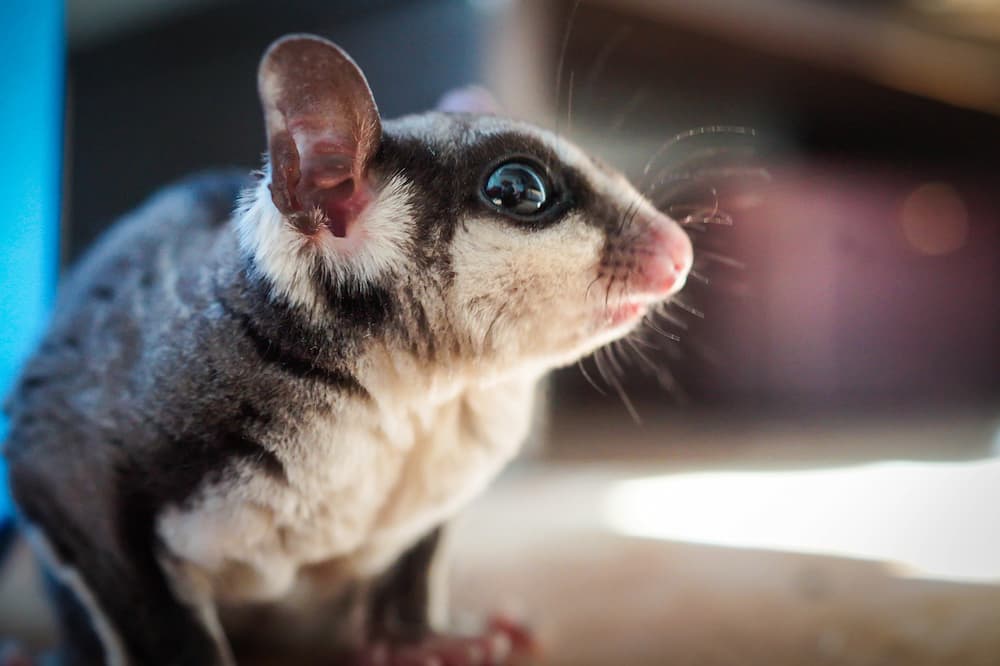Why Your Sugar Glider Won’t Stop Barking
Sugar gliders can make some funny sounds. They can also make some questionable, and perhaps annoying, sounds. One sound that new sugar glider owners can find confusing includes barking.
It’s normal for new owners to be taken aback the first time they hear their sugar glider barking. It’s only natural to wonder why your sugar glider is barking, and what this strange glider sound means.
Keep reading to learn why your sugar glider barks, what you can do to ensure they no longer feel the need to bark, along with everything else you need to know about sugar glider barking.
Why Do Sugar Gliders Bark?
Sugar gliders can bark when they are frightened, scared, or upset. They may also bark as a warning signal to other sugar gliders that danger could be near. Those two are the most common reasons your sugar glider may bark, but there’re other reasons as well. So, let’s dive into some other reasons your sugar glider may be barking.
Other Reasons For Sugar Glider Barking
Some sugar gliders may bark for other reasons than being scared or threatened. If you own a sugar glider, then you may have noticed that they can pick up an attitude from time to time.
This is one of those times when that attitude may show and your sugar glider wants to let you know who’s the boss by barking.
Your sugar glider may also bark or make bark-like noises if they’re not in the mood to be picked up. If you believe this to be the case, you need to learn how to get your sugar glider to enjoy being held.
Although it’s rare, you want to recognize and respect the signals and body language of your sugar glider. The majority of the time, your sugar glider should be friendly and therefore barking shouldn’t be an issue, but if it becomes an issue, just stay back and respect their wishes.
However, this doesn’t necessarily mean that you’re scaring your sugar glider or that your glider is trying to warn a second sugar glider you have in the home. It may just mean that your sugar glider has not warmed up to you and perhaps is not yet ready to be held just yet.
Barking Should Decrease As Your Sugar Glider Warms To You
Sugar gliders gradually begin to recognize their owners once they have had time to adjust to you and adapt to their new environment. Nevertheless, it’s still possible to frighten your sugar glider on a random day when attempting to pick it up for some cuddle time. If this happens, then simply back off, giving it some time.
Another piece of advice is to learn how to gently and safely get your sugar glider in and out of its enclosure correctly. This can help eliminate your sugar glider from audibly barking at you when you’re trying to interact with it.
Other Times A Sugar Glider May Bark
It’s possible for some sugar gliders to bark at random times of the day, or in weird situations. While some sugar gliders may only bark when interacting with them, others may bark without being provoked in any way at all. Here is what I mean.
Sugar Glider Barking At Night
As mentioned previously, sugar gliders bark the most when their experiencing fear, stress or to warn other sugar gliders. A sugar glider may bark at night due to noises they hear throughout the night, like loud music or a car passing by, or to indicate something else has scared them.
Do Sugar Gliders Bark While Sleeping?
Some sugar gliders will bark in their sleep if they become frightened. The reason a sugar glider is barking in its sleep is likely due to them being startled. If that’s not the case, then it may not be as clear as to why they do it. Whatever the reason, you shouldn’t be overly concerned.
Should You Worry If Sugar Glider Doesn’t Bark?
Maybe your sugar glider is a barker or maybe they’re not. Maybe it barked at you last week or barked at something else, and maybe hasn’t barked since.
This is completely normal!
If your sugar glider isn’t making audible noises or has stopped its barking behavior, then it isn’t immediately something to become overly concerned with. This could mean nothing more than your sugar glider being content and having no message that they need to relay to you.
However, it’s always important to monitor these situations and keep a mental note about what your sugar gliders’ behavior has been like recently.
How To Get Your Sugar Glider To Stop Barking
To get a sugar glider to stop barking, the best thing for an owner to do is to continue spending as much time as possible with it. The more comfortable your glider becomes with you, the less they should get scared or stressed by situations. An easy way to do this is to allow them time out of their enclosure.
Just be sure to make your room sugar glider proof before doing so.
Overall, the more comfortable your sugar glider becomes with you, their new home, and all the commotion that happens in the household, the less barking you should hear.
Conclusion
Sugar glider barking may mean one thing for one glider owner and something different for another owner. There’s no need to be overly concerned.
As previously stated, this is most likely due to fear or trying to relay to you that they’re uncomfortable with a certain situation. At the end of the day, the most important thing to do is to interact with your sugar glider, get them comfortable with you, and begin building trust.
Always watch out for strange behaviors to be sure that there isn’t anything more serious causing your sugar glider to make odd noises.








